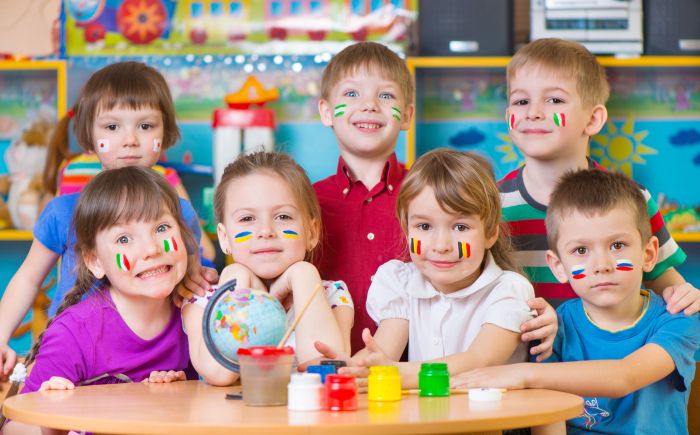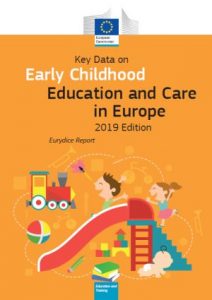indireinforma
Well begun is half done! The new Eurydice report on early childhood education and care in Europe

 Early childhood education and care, that is the stage preceding primary education is the segment of the educational cycle that lay the basis for lifelong learning and the development of the person.
Early childhood education and care, that is the stage preceding primary education is the segment of the educational cycle that lay the basis for lifelong learning and the development of the person.
The new report of the Eurydice network: “Key Data on Early Childhood Education and Care in Europe” reveals the progress made by EU countries in the key areas identified by Council Recommendation of 22 May 2019 on High-Quality Early Childhood Education and Care Systems.
The key areas refer to governance, access, personnel, educational guidelines, evaluation and monitoring. The first part of the report analyses these areas transversally with a special attention to the correlation between the policies implemented. Special attention is given to the 0-3 and 3-6 years old unified system considered to be a parameter of high quality pre-primary education that is crucial to the enhancement of social equality and equilibrium. The second part provides an overview on the main aspects of the national systems of early childhood education and cure accompanied by the diagrams of the relating educational structures.
The aim of the report is to provide decision makers, researchers, and families with fast access to international comparative data and a large quantity of examples of European national policies in the sector of early childhood education and care. The study covers 38 EU countries participating in Erasmus+: the 28 members of the EU plus Albania, Bosnia and Herzegovina, Switzerland, Iceland, Liechtenstein, Montenegro, Northern Macedonia, Norway, Serbia and Turkey.
The study reveals that obtaining a place at an affordable cost is still difficult for many families with children under 3 years old. Things improve for older children: half of the EU countries guarantee access since 3 years old. As far as the difficulty to obtain a place in nurseries is concerned, Italy is no exception. However, for older children in the 3-6 age group the percentage of attendance is close to 95% (European benchmark for 2020).
The employment of highly qualified personnel – holding a bachelor’s degree or a higher level of education – guarantees the creation of more stimulating learning environments, more adequate cure and support. Also in Italy, from the next school year, in line with most EU countries trend, educators in state infant schools will have to possess a first level degree.
Higher quality educational systems are characterises by a unitary setting for 0-6 year olds. In the majority of EU countries, early childhood is organised in age-separate structures: 0-3 and 3-6 years of age. In countries with different settings according to the age of the children, the prevailing governance is represented by two different ministries or authorities, as in the case of Italy, where the governance of the 0-3 services is decentralised while that of older children is carried out by the MIUR. In this framework, Italy is one of the countries that have a totally separate system where a unified training system for all the staff is missing, there aren’t unified educational guidelines for the whole period, the management is assigned to two different bodies (MIUR and regions) and finally, children carryout the two phases of the path in separate organisational structures.
“Key Data on Early Childhood Education and Care in Europe” (pdf) >>
Eurydice is an institutional network that collects, updates, analyses and disseminates information on the policies, structure and organisation of the European education systems. Founded in 1980 on the initiative of the European Commission, the network consists of a central unit based in Brussel, and various national units. Since 1985, the Italian National Unit has been based at INDIRE.

